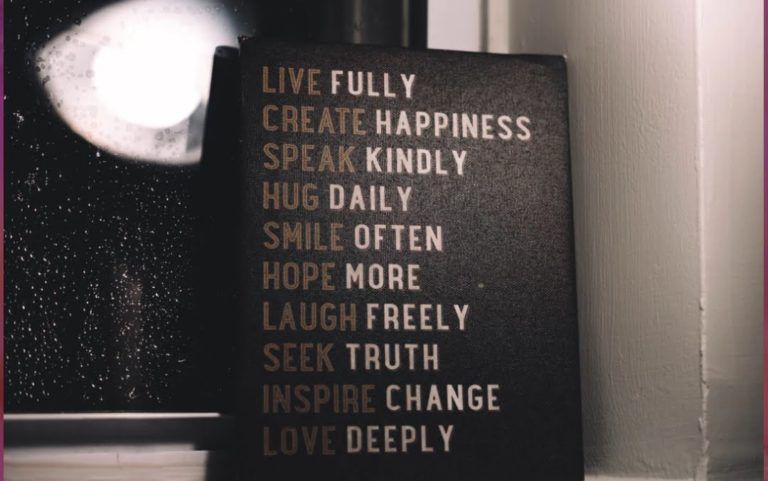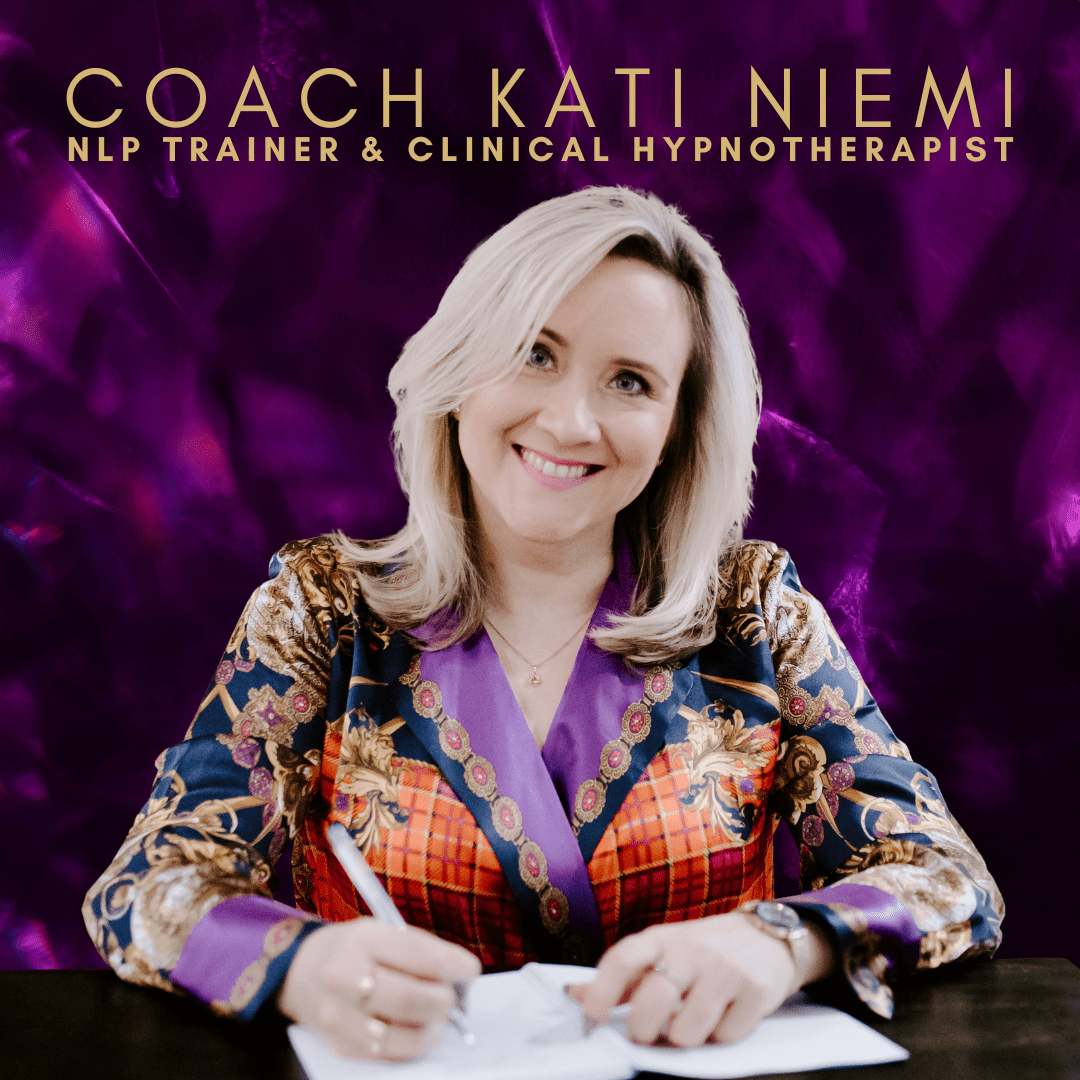Dr Robert Kegan, Harvard professor emeritus and developmental psychologist, is known for his five-stage model of adult mental development. According to that model, the majority of adults reach no more than one half of their potential arc of development. So, could you make the most of your life and improve your wellbeing through self-development? And if so – how?
According to the study, most people build their self-image according to social pressures. Meanwhile, they are unable to differentiate between their own and other people’s opinions in relation to their obligations and genuine interests. They are unable to meet the demands of work and family life because the conflicting goals in their environment pull them in several directions at once.
When you don’t know where you are heading, life can feel very stressful. Few of us reach the level of insight that allows us to identify our challenges. This leads to limited ability to seek sustainable solutions to the causes of our stress (not just the symptoms). So the question is: how to improve your wellbeing through self-development? This question is especially relevant if you think you are not the one who needs to change and see others as the cause of all your problems.
Blaming others for your problems is quicker and easier than self-development. But do you think you could even try to look and see beyond the “facts”? And how to react if a change in perspective creates an almighty internal havoc? What if it is more than you can handle? Happily, what self-development does is increasing your resilience and tolerance of unpleasant realisation.
Who knows, you might even learn to enjoy busting the juiciest of your myths!
Will self-development help if you think you are doing nothing wrong?
Middle-aged parents tend get frustrated with their know-it-all teenagers. Laughably , they think they are fully grown adults the day they turn 18. However, these same middle-aged people often make exactly the same mistake: they think they are ready. They don’t feel the need to learn and often dismiss self-development as some sort of new-age rubbish and a waste of their valuable time.
Why all the navel-gazing? Why do I have to think about my thoughts and feelings?
According to the developmental psychologists, we are not all that developed. They would argue that most of adults have not reached the development level required to manage in the modern changing world.
How does that make you feel?

Some people are aware that in order to make it to the next stage in their life, they might benefit of improving themselves. Often they don’t know where to start. It is sometimes difficult to identify your own challenges. You may be surrounded by people who always agree with you. You only have problems “with the wrong type of people”. It is those people who are “wrong” who should be looking at themselves in the mirror, not me!
Are imperfections and incompleteness sings of failed individuals? Or are the, to the contrary, a source of vitality for us all?
As explained above, some psychologists maintain most that adults don’t develop beyond a fairly modest stage. When reading it, did you also think that you are not one of them? It is easy to believe you are smarter and superior to the majority on the “lower rungs of the ladder”.
This type of thinking is, in fact, a natural part of the developmental arc of the human mind. It is a belief that restricts our development. However, it probably serves a certain purpose: it allows us to feel comfortable in our own skin if we don’t see ourselves as incomplete or immature. And in all honesty, it is not our fault if we weren’t provided with a sound basis for life. Moreover, if we are struggling with our normal obligations, we are hardly ready for some stupid self-development course.

However, if you are overwhelmed, over-stressed and over-stretched by the realities of your life, focusing on yourself might the last thing on your mind. However, it might be the moment when you should focus on your wellbeing more than ever. For examples, take one of those stupid self-development courses.
If you want to improve your wellbeing permanently and not just try to do something about it, what would the practical next steps be for you? Even if you fully agree with the importance of self-development where do you start? How will you know if you don’t understand the purpose and the methods of self-development?
So: how to improve yourself through self-development?
How about signing up on that stupid course, just to find out what your options are? There are courses with a wide range of approaches and levels. There are extensive packages for general self-development as well as more tailored ones for specific challenges. Google “self-development”, “coaching”, “NLP”, “hypnotherapy”, “cognitive therapy” or “psychotherapy”.
It doesn’t matter where you start.
Like with any new skill, it doesn’t matter that much where you start. Just start. Look around and try different approaches until you find the coach or groups that works for you. Note that different training and coaching brands often offer ultimately similar content and tools. Start somewhere and move on to something else even if your first choice feels right. Every trainer and coach has a lot to offer especially if you are at the beginning of your self-development journey.
The best part of self-development is realising just how incomplete we are on so many levels. The more issues you identify that you could improve on, the greater your potential!
Imagine all the things you can achieve in your lifetime!
How to improve your wellbeing through self-development if you don’t think it can help you in practice?
It is difficult to know how something could be of help unless you’ve tried it. Self-development can only help if you practice it in earnest and go deeper than quick fixes

An increasing body of neuropsychological publications show that individual can take active measures that have a positive effect on the brain, cognitive functions and behaviours. Science has shown that if we don’t use our brain we almost start to regress. And this backword development is not linked to any form of dementia.
Why does this happen? The brain optimises its operations by pruning out redundant neural routes. At the same time it strengthening the neural routes that a person stubbornly keeps using. This can ultimately be detrimental to our development. One of the key realisations in self-development is to learn to say no to your own stubbornness. Our thoughts are not always looking after our best interest. Our thoughts don’t always mean well. Train your inner critic to be more constructive.
We don’t necessarily improve with age – but we can.
Thanks to brain plasticity, we can do a lot to look after our brain health. With good brain health, we are more likely to make good decisions about our lives.
What routines have you adopted to maintain and improve your brain health? Where could you start in self-development if nobody among your family or friends has gone down that road?
How much do the personal challenges you identify as “running in the family” really stem of genetic disposition? Or is much of it actually values and beliefs that have been handed down from one generation to the next or created by your environment?
Could you be the one with whom that family trait ends?
Peter Pans and other eternal children
If a person presents a lack of maturity in their brain and hence in their behaviours and attitudes, this limited mental capacity is not necessarily just a result of hereditary qualities or other developmental factors. Nor can they be dismissed as Peter Pans, people who never want to grow up. In reality, playful creativity keeps the brain awake and curiosity inspires finding new solutions even under stress.
What happens to a relationship if your partner proves immature after years of shared life?
Kegan refers to relationship to illustrate the different stages of adult mental development. A couple who met when they are young adults in the third stage of development feel close to each other because they share similar beliefs and values. Individuals whose development takes them to stage four accept each other regardless of each other’s thoughts.
In the fourth stage, a person no longer allows external forces to define themselves and determine their relationship with these forces themselves. They are aware that they hold various values and beliefs but do not feel that they are the sum of their values and thoughts. If a couple has developed to stage four, they can feel close even when seeing each other as separate beings.

How do you know what you need to develop in yourself and in your relationship?

A person who has reached stage five in Kegan’s model is not imprisoned by a certain model or perspective and instead they understand they are more than any of the roles they have in life. This means that a person’s self-image becomes an object that you can observe from outside yourself. Self-development means practicing towards this goals.
Most relationships hit both rock bottoms and blissful highs. But what if your relationship persistently stays closer to the bottom and the partner wading in deeper waters seems to drag both of you down? How can you use self-development to support your partner in their growth path while protecting your own boundaries.?
How do you know if a virtue you have pursued since childhood – such as being nice and polite – has turned against itself and the resulting stress has left you a cold and hard martyr or simple exhausted?
Where do you muster the courage to decide on breaking up if you feel your self-image is built on external norms and the taboo that “breaking up is failure”?
How to respect your ex if their values or habits are so far from your own?
Read more about the themes of improving your relationship or breaking up successfully up in the book (R)evolution for Love – A Better Relationship or a Brilliant Break Up?
According to Kegan, an individual’s mental development is best supported by an environment that endorses their current thinking while encouraging self-analysis with an open mind. What is your environment like?
Does your partner and other people close to you accept you as you are even when you disagree with them or don’t meet all their hopes and expectations? Does your close circle encourage you to develop in your own direction rather than pushing you into a mould they would prefer you to be in? Take your time thinking about this without apportioning any blame on any of your family and friends.
Kegan’s model of adult mental development is just one of the many theories around, but what all mental development models agree on is that only few progress to the highest level. However, what stage of development a person stands on or reaches is irrelevant. What matters is the journey, the growth. Sometimes you find the direction that calls out to you with the help of encouraging co-travellers who serve as sounding boards and companions on your journey.
What are you feeding you brain with in the morning, during the day and through your evening activities?
How would you like your close circle of people to shape you even if either they or you are not aware of their influence?
“Like breeds like”, parents warn their children when worried they are not keeping good company. Now we know that this saying is quite an accurate description of our behaviours throughout our lives.

Moral and self-development
Young people often see the world very black-and-white. It is one of the “symptoms” of being young. However, adults can be equally fanatic, as we are seeing more and more these days on social media, online and in real life. The only difference is that adults have learnt to hide their black-and-white or unethical thinking behind the camouflage of “realism” or “freedom of opinion”. It is easier to mask undesirable behaviours as seemingly moral that to genuinely act morally or ethically.
According to another widely-known theory, Kohlberg’s six stages of moral development, most of the adults never develop beyond a modest level of morality. Many of us are able to spot immoral behaviour or hypocrisy in our environment but, according to the surprising research findings, not as much as we would expect.
We want to believe that we are good or at least mean well, despite the fact that we don’t others, or ourselves, all that well. When our internal critic is beating us up, it is difficult to be kind to others.
A fairly small proportion of adults reaches the highest level of Kohlberg’s six stages of moral development. Low morality is not the exclusive characteristic of criminals and psychopaths.
Read more about the stages of development in cheating.

The Good Girl and Mr. Nice Guy: How can you protect yourself?
No matter how organised and norm-driven your society is, much of human behaviour falls out of explicit regulation and so it should be. There are no written rules on what sort of gestures and hidden messages are acceptable when communicating with your ex or their new partner. Our only guidance is morality and ethics that we want to exercise towards all fellow human beings.
Many adults, including those with good careers and other signs of well-developed capabilities, often base their personal goals on fear of losing their footing rather than genuine love. Studies have shown that people who in materialistic terms are considered highly successful are more likely than average to present with psychopathic characteristics. People like these make a great first impression but in reality treat people with coldness and can be abusive.

This means that a person may be highly successful when measured with certain indicators while staying morally and mentally extremely immature either because of their personal characteristics or life experiences. Psychopaths are seldom born with cold personalities. Their growth into unempathetic opportunists may be the result of their childhood home situation, bullying at school and other mental abuse.
Those who remain on the first tier in Kegan’s mental development model are only interested in themselves and are ready to listen to other people’s opinions only insofar they support their own aspirations. Fortunately, there are far fewer psychopaths and narcissists around than you would think judging by the way we talk about our ex-partners and bosses. However, setting and keeping your boundaries is always important even if the people around you are sensible and nice.
If you suspect that your partner is too concerned about themselves only and possibly about a third party outside your relationship, read this (R)evolution for Love blog post: INFIDELITY and the collected excuses: The good reasons for cheating

INFIDELITY and the collected excuses: The good reasons for cheating
CHEATING: What is a good reason to cheat? What do the cheated partner, “the other woman/man” or the cheater choose to believe in?
Firmness and flexibility
Never be anyone’s doormat. No matter how smart and attractive your partner is, don’t sacrifice yourself in pursuing their dreams at the expense of yours.
Kegan gives us great tools to take a look at our own boundaries:
- What is valuable and important to me?
- How do I assert my boundaries?
- Where am I prepared to be flexible?
- How do I know if my boundaries between the people I interact with and myself are either too weak or too rigid ?
- How do I protect my boundaries and staying firm but flexible?
For more practical exercises on this theme, read the (R)evolution for Love book.
How to improve you through self-development? Start by reading on the topic!
The themes discussed in my blog are given an in-depth treatment in my book (R)evolution for Love, which discusses relationships and break ups from a multitude of angles:
The book discusses at length the setting and asserting of one’s boundaries, and asks the question, how do we know if we have turned into a Mr Nice Guy or the Good Girl who has lost their own will and direction? How to shift the ideal of kindness from the submissive “yes dear” to being able to say calmly and politely “no thank you, dear”? Being kind and nice is an amazing quality in a human being. So much so that it deserved it own chapter in my book: The nice guy and the bad guy, the good girl and the harridan. Read more about the (R)evolution for Love!
Self-development is inspiring and fun provided that you go deeper than the surface. One excellent way of improving your wellbeing through self-development is to read literature and research publications


CHEATING: At what stage of evolution is your relationship?
How common is cheating in relationships? Is cheating the cause or the consequence of relationship problems and can it be stopped by love?

Are horoscopes real and good for you?
Are horoscopes real? Are they good for you? Can they do harm? Psychological views on Astrology and the benefits of Zodiac Signs.

Stress Management: 10 Tips How to Prevent & Reduce Symptoms
How to prevent, manage and reduce stress in a busy life? Causes and symptoms of stress, and good tips for stress management and wellbeing.

INFIDELITY and the collected excuses: The good reasons for cheating
CHEATING: What is a good reason to cheat? What do the cheated partner, “the other woman/man” or the cheater choose to believe in?

FREE EBOOK ‘I love you but…’ – To Break Up or Not to Break Up?
Refocus your energy now to improve your love life! This FREE ebook ‘I love you but…’ will help you move towards a better relationship or

(R)evolution for Love – The Book
* I have selected every editorial product for your benefit. Sometimes you may get some discounts and I may receive a share from purchases made
Sources:
The articles and studies that I used for this blog post were:
Revolutions for Love blog: Cheating in a relationship? At what stage of development is your relationship?
Interview with Robert Kegan in YouTube: Robert Kegan – The Evolution of the Self
A free summary of Robert Kegan’s theory of the development of consciousness: Kegan’s Theory of the Evolution of Consciousness
Kohlberg’s six stages of moral development: Leman, P., Bremner, A., Parke, R.D. & Gauvain, M. (2019). Developmental psychology (2nd edition). McGraw-Hill Education. Chapter 14, pp. 418–428.
On the prevalence of psychopathic traits among business leaders: Hill, D. L. (2018) – Climbing the corporate ladder: Desired skills and successful psychopaths.



























